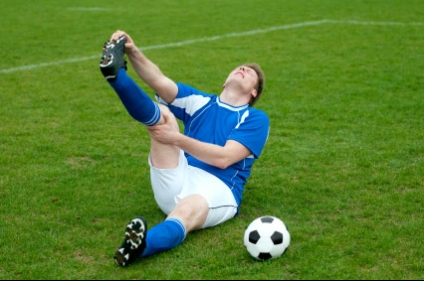A Henry Ford Hospital study published in the Journal of Arthroscopic and Related Surgery has found that patients who underwent knee surgery and other types of sports medicine procedures could manage their pain without opioids or a minimal dosage.
“This is a large prospective study and our hope is that non-opioid use will gain momentum and that others may tweak our protocol and use it throughout orthopedics, from joint surgery to spine surgery and other surgeries” says Vasilios (Bill) Moutzouros, M.D., chief of Sports Medicine, a division of the Department of Orthopedic Surgery and the study’s lead author. “We hope that we are helping to change practices not just in sports medicine surgery but in all surgery.”
The purpose of the prospective study was to determine whether postsurgical pain following common sports medicine procedures could be managed effectively with a nonopioid multimodal analgesic protocol that relies more on non-steroid and anti-inflammatory medicine. It included 141 patients who underwent surgery between May and December 2018 for ACL reconstruction, shoulder and rotator cuff repairs or a torn knee meniscus. The study is the first in a series by Henry Ford researchers examining the issue.
Researchers found that 45 percent of patients had low levels of pain that was effectively managed by the regimen. Drowsiness was the only side effect reported by patients. All 141 patients were satisfied with how their post-surgery pain was managed by their doctor.
Even though patients were prescribed oxycodone as part of their regimen, none used it for pain control. Researchers say the regimen appeared to be essentially multiplicative, alleviating the need for patients to take the oxycodone.

Patients who required opioids were more likely to have a history of anxiety/depression and reported higher pain scores than those who didn’t need to take them.
“This kind of research has the potential to decrease opioid use in the general population as we find that many patients who abuse opioids started using them after a surgery and got hooked on them. It starts with the more common surgeries. By eliminating surgical opioid use, we are contributing to the reduction in opioids, which helps decrease dependence,” says Kelechi Okoroha, M.D., a Henry Ford sports medicine physician and a study co-author.
Toufic Jildeh, M.D., a study co-author and administrative chief resident in orthopedics at Henry Ford, says sports medicine physicians can “play a direct role in improving pain management and decreasing opioid prescribing.”
“There are currently no protocols that completely eliminate opioid use,” he says. “This study strongly suggests that eliminating opioids postoperatively is actually possible.”
Prior Henry Ford studies that focused on perioperative pain control and minimizing post-operative pain and opioid consumption after sports surgery led researchers to better understand risk factors that contribute to postoperative pain.
“It’s a practice changing study,” Dr. Moutzouros says. “This type of research allows physicians to look at how we manage pain differently in the post-surgical environment. It allows us to change our practices and become safer. What we’re trying to do is support each individual patient and reassure them that we are going to prescribe little if any opioids for their pain control to mitigate or eliminate a potential for addiction.”
MEDIA CONTACT: Sal Giacona / sgiacon1@hfhs.org / 313-421-9108









